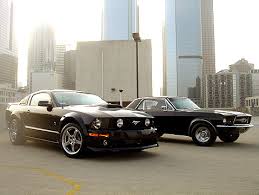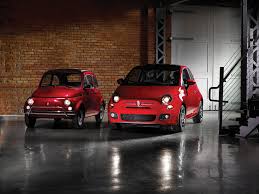So, it’s all set to be a bumper year for car sales in Ireland (unless the Chinese economy drags us all down with it, of course…) so it’s time to start putting your shopping list together for your motoring needs this year.
First questions; should you buy new or used?
That’s actually a trickier one than ever to answer, because right now the market is so unbalanced. Because of the historically low car sales from 2009 to 2013, thanks to the recession, there is still a distinct lack of high quality used car stock on Irish dealer forecourts. Improved new car sales in 2014 and 2015 have helped, as have imports from the UK, but it’s still not enough and good cars are scarce, especially if you’re searching for something outside the silver-hatchback-compact-diesel norm.
That has skewed the market more towards new cars, and the car makers are taking full advantage of that fact with tempting Personal Contract Purchase (PCP) offers, as well as some very generous trade-in bonuses for older cars (being touted, inaccurately, as ‘scrappage’ deals). So, with the prospect of affordable monthly repayments and a potential €4,500 (terms and conditions etc) trade-in for your old heap being dangled in front of you, why wouldn’t you buy new?
Well, the cost of a new car is the simple answer. PCP deals look great, but they’re only really a good idea if you are genuinely intending to come back in three years time and trade in for another new car. For those who like to keep their cars for longer, they’re not really a sensible option as you will have to find money to put aside for the ‘bubble’ payment at the end of the deal, and you are also then not enjoying the protection from the car’s depreciation. Depreciation, let’s not forget, is the single biggest cost in car ownership. If you buy a new €20,000 car today, in three years’ time, give or take, it’s going to be worth around €8-9,000. That’s €11k you’ve just poured down the drain.
Now, not all deals are equal of course, and not all second hand cars are as reliable or as frugal as a new car. There are some handy online tools around which can work out for you whether you’re better off sticking with an older car or trading in for a new one (Renault Ireland’s carculator.ie is a good one) but, as ever, you need to do your sums. If you want the latest and most fuel efficient engine, the lowest possible motor tax and the reassurance of a long warranty, then buying new is definitely for you. If you like to be truly frugal about your car purchases, then the old buy-at-three-sell-at-five rule of thumb still holds up surprisingly well.
You’ve decided to buy used. Now what?
 Well, as we pointed out at the start, you’re looking at the law of diminishing returns in the Irish used car market. Good metal is thin on the ground, and if you have very specific ideas about what you want, then you will have to look very hard indeed to find it.
Well, as we pointed out at the start, you’re looking at the law of diminishing returns in the Irish used car market. Good metal is thin on the ground, and if you have very specific ideas about what you want, then you will have to look very hard indeed to find it.
Of course, the UK market is still an option, but that is currently fraught with difficulties. The value of the Euro relative to Pound Sterling has improved, very slightly, of late, but the advice is that if you’re planning on spending around €15,000 on your car, the costs of exchange, Vehicle Registration Tax and physically going to collect the car (flights, ferries, etc) will outweigh the potential savings.
Buyers shopping in higher brackets can, though, still make some significant savings. Those looking for a prestige model – BMW, Audi, Mercedes, Jaguar etc – can find that the UK market has so much more choice, and is so much more affordable that the exchange rate becomes, surprisingly, the smallest cost of all.
History is crucial though, especially when buying from the UK. Because it’s a much bigger market, a car is statistically more likely to have some problems in its past, and while we’re blowing our own trumpet a bit here, getting a full and proper background check is vital. A recent report also showed that, regionally, there are large variances in the UK market as to whether a car has outstanding finance owing on it. Scotland is apparently the region where most cars still have outstanding money owed, so perhaps caution is advised if shopping up north.
Reliability a priority.
Reliability is everything to a second hand car buyer, which is why Japanese brands tend to have such strong residual values. While it’s true that the Korean brands are more or less as reliable nowadays, and the European and American brands have caught up a long way, the truth of the matter is that, in general, a Toyota, Honda, Nissan, Subaru or Mazda is always going to last longer and go further than an equivalent car from a competing brand.
There are nuances though, and don’t count out European and other brands on the reliability front. It’s all about the care and attention which the car has received in the past, really. Traditionally, Irish car owners have not treated their cars well, and in the past the prospect of finding a car with a full and stamped service history was more legend than fact. That’s no longer the case, thankfully, and really, as a second hand buyer, you shouldn’t consider nor accept any car that doesn’t have a full set of stamps. Bodge work by back-street garages is no longer acceptable.
A very good development in recent years has been the offering of inclusive service packs, whereby a new car buyer pays up front for the first three-to-five years servicing. It generally means that the car has been serviced on time, fully and by a main dealer and it’s a very good sign as to future reliability.
Minimise risks
 Still worried about something going pop? Then there are now aftermarket warranties available, which can cover the cost of major component failure if the worst happens. They’re about the same price as insurance (generally about €400-500 annually for an average car) and while they won’t cover small repair jobs, if a gearbox or an entire engine lets go, you’re covered.
Still worried about something going pop? Then there are now aftermarket warranties available, which can cover the cost of major component failure if the worst happens. They’re about the same price as insurance (generally about €400-500 annually for an average car) and while they won’t cover small repair jobs, if a gearbox or an entire engine lets go, you’re covered.
Speaking of insurance, one final worry – Irish insurers have recently decreed that 10 year old or older cars are no vehicula non grata. The actuaries have decided that older cars are more likely to be involved in an accident, and so quotes and insurance rates for pre-2007 cars have spiked dramatically, with many customers getting renewal quotes as much as five times their previous cover, while new customers with older cars are being refused outright. It’s an iniquitous policy, but until the Government steps in to do something about it, we’re stuck with it. It does mean that the pool of cars from which you can reasonably choose is getting smaller and smaller.
So, do your homework, prepare to wear out some phone lines and shoe leather and don’t be dazzled by supposedly shiny special offers. The right car, at the right price, is out there somewhere for you though. So go and find it & check it on motorcheck.ie.